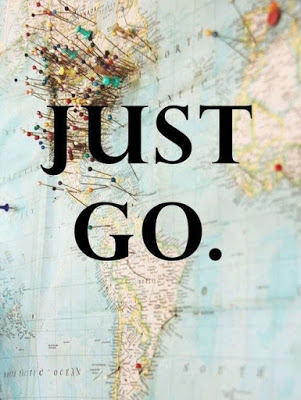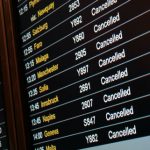My heart breaks for the people of any city affected by terror attacks or natural disasters – this week, we are all praying for Brussels. Sadly, this is becoming an all to common occurrence. While, we live in an uncertain world, we cannot stop living our daily lives OR enjoying travel. If we do, fear will rule our lives – nobody wants to live like that.
Travel writer and expert Wendy Perrin published the below post on her blog Tuesday after the tragic events in Belgium. It sums up exactly how I feel about traveling during uncertain times…I hope she won’t mind if I re-post it in its entirety – I think all of you will find it incredibly insightful.
7 Keys to Traveling Without Fear Despite Terror Attacksby Wendy PerrinToday’s terror attacks in Brussels—where explosions killed dozens of
people at the airport and in the metro—underscore that we’re living in a
world where anything can happen anywhere at any time. Terror can strike
in a Paris concert hall, on an Istanbul shopping street, in a Madrid
train station, in a hotel in Mumbai, at a shrine in Bangkok, in the
London Tube, in a nightclub in Bali, at a running race in Boston, in a
skyscraper in Manhattan….
The Brussels explosions are frightening, and they’re probably reason
for airports to tighten up pre-checkpoint security and for daily
commuters in major transportation hubs to be as vigilant as ever, but
they’re not reason to stop traveling, or to avoid huge swaths of the
globe out of a misperception that your risk is greater there
than anyplace else. They’re reason to keep traveling, to make friends
around the world, and to be a thoughtful ambassador for your country.
Of course, while your head may agree with me, your gut may be
apprehensive. You may be making travel plans—or trying to—and you can’t
help but wonder: If I go, what is the risk that I will get caught in a
terrorist incident? How do I minimize that risk? If I can’t minimize it,
how do I get over my fear?
I believe the solution is to put your risk in perspective. Here’s how:
1. Grasp how minuscule the statistical probability is of getting caught in a terrorist attack abroad.
According to the U.S. State Department, the number of U.S. citizens killed overseas
by incidents of terrorism from 2001 to 2013 was 350. If you’re
thinking home is safer, compare that number with the 3,030 killed in the
U.S. by terrorism during the same period. More recently, of the 132
lives lost in the Paris attacks, only one was an American; and of the 15
people killed by attacks in Istanbul this year, two were of dual
U.S.-Israeli nationality. In terms of street crime and gun violence,
most of the U.S. cities we live in are statistically more dangerous than
the places we visit abroad. Your risk of being killed in a car crash
(one in 19,000), drowning in your bathtub (one in 800,000), or being
struck by lightning (one in 5.5 million) far exceed your risk of dying
from terrorism (one in 20 million).
2. Don’t confuse the probability of a terrorist attack with the probability of becoming the victim of a terrorist attack.
Is it virtually certain that there will be another terrorist attack
in Europe in the next 12 months? Yes. Does that translate into a high
degree of risk for the individual traveler to Europe? No.
3. Know where the real dangers lie.
When planning a vacation, we tend to worry more about spectacular
risks—whether a terrorist attack or an epidemic of norovirus on a cruise
ship—than about boring risks like, say, overexposure to the sun, even
though one in five Americans will develop skin cancer in the course of a lifetime. Remember that the single biggest cause of death for Americans traveling overseas is motor vehicle accidents.
4. Understand the reasons why your fear of a terrorist attack is out of proportion to the risk.
There are psychological reasons
why we are more afraid of terrorist attacks than logic would dictate.
We’re more afraid of risks that are new and unfamiliar than of those
we’ve lived with for a long time (e.g., heart disease, which kills one in 467 Americans annually).
We’re more afraid of risks that kill us in particularly
gruesome ways—say, a plane crash, a shark attack, or the Ebola
virus—than in mundane ways. We’re less afraid of risks we feel we have
some control over, such as skiing and driving, even if it’s only the
illusion of control. (Most people think their driving is safer than it
actually is. We’re all one text away from death on the road.) We’re
more afraid of human-made dangers than of those with natural causes,
such as solar radiation or earthquakes. We’re more afraid of risks that
are highly publicized, especially on television, and those that involve
spectacular events. One incident with multiple deaths has a much greater
impact than many incidents each involving a single death. That is one
reason why we fear plane crashes more than car crashes (even though the
latter are far more likely).
5. Don’t focus so much on unlikely risks that you ignore common risks that are far more likely to hurt you.
Frightened people make dangerous choices.
As an example, after 9-11, people chose to drive rather than to fly.
As another example, cruisegoers may be so focused on washing their
hands frequently in order to avoid norovirus that they forget to reapply
their sunscreen. Or, here’s a personal example: When I was in Istanbul
shortly after 9-11, I opted for a small, locally owned hotel in a quiet
part of town far from the U.S. Consulate. I figured a Western chain
near the main square, or a hotel next to the Consulate, was more likely
to be a terrorist target. But every night I kept having to hail a taxi
to that small hotel, and the drivers kept getting lost en route–one even
got a flat tire and left me on the side of the road—and it was dark on
that inconspicuous street in a quiet part of town. My point is: The
miles it took to reach my hotel every night raised my risk more than the
likelihood of a terrorist attack at a Western chain near the Consulate
would have.
6. Appreciate that what’s bothering you is not risk itself but your uncertainty as to the degree of it.
The problem you face as you try to plan a vacation is that you don’t know
what your risk is or how safe one country is versus another. We try to
weigh the risk of one destination over another by looking at the
historical record of violent incidents there. What’s tricky right now is
that we don’t know how relevant the historical record is. Will the
future be different than the past? We don’t know. Even when you can’t
know the degree of risk, though, you can…
7. Lessen those risks you do have some control over.
You can say to yourself: “What is the likelihood of the situation affecting my trip? Pretty tiny.” And you can lessen those risks you do have some control over. You can drive very carefully on your way to the airport.
Common sense advice, right?
Just GO, everyone…travel, live it up and enjoy life to its fullest!!!
More Posts to Love







Good for you. I lived in Brussels and it's a lovely place. I lived in Kenya, which has been attacked several times; I never was afraid of an attack any of the times I've been back–more worried about crazy drivers. The saddest thing is that after attacks, tourism dries up and destroys livelihoods–something even more keenly felt in developing countries like Kenya, Mali, Egypt and Turkey.
Excellent advice, and while everyone is feeling a little nervous….when you really pay attention the odds, its nearly an impossibility. Sadly our wold is changing so fast but it doesn't meant that those of us who see the beauty and wonder of the world should be robbed of the chance to explore it. By doing so these madmen win……the best thing we can ALL do is our best to not live in fear, and plow forward full steam ahead and not giving them the power. Cheers to beautiful places!
Dearest Sandy, this is a great article. I have to admit that I do NOT want to travel to Europe any time too soon. But the first thing for any matter is to be educated. To know and be AWARE of alternatives, patterns, and to be vigilant in all circumstances COULD keep you safe. I just am still too shaken and shocked at what is happening, that it will take me a while to accept the fact that we can't just stop our lives. Great share.
Dear Sandy, your article is actually very reassuring in these times of terror in the world.
We can't allow a few people dictate our lives, travel and activities. Thank you!
Have a wonderful Holiday Weekend!
xoxo
Karena
Featuring Artist Scott McBee
Sandy, Great post. Thanks so much. We need this article now. The odds are far greater to be shot by an American with a gun on our own soil than by a terrorist abroad. Those are the facts, but people buy into the fear we see and hear on the news. If we stay home we only close our minds more to the world around us. Have a good weekend. xo Kim
You hit on a subject that is dear to my heart, I am frozen right now afraid to travel abroad and I know I have to get over it. It is a fear of the unknown and things out of my control. but I appreciate this post so much Sandy!
For me, the line "They’re reason to keep traveling, to make friends around the world, and to be a thoughtful ambassador for your country." says it all. Now more that ever we need to connect with other peaceful, good and honorable people around the world to unite in our efforts to defeat hate and terror.